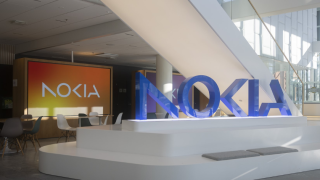The round was led by Molten Ventures and included participation from simulation, high-performance computing (HPC) and AI firm Altair and returning investors Cambridge Innovation Capital (CIC), Amadeus Capital Partners and the National Security Strategic Investment Fund (NSSIF).
Altair CEO and founder, James R Scapa will sit on the Riverlane board.
The new investment substantially increases Riverlane’s enterprise valuation and is expected to see the company through to cash flow breakeven.
The additional capital will be used to accelerate the development of Riverlane’s operating system for error-corrected quantum computing, Deltaflow Os.
Riverlane founder and CEO Steve Brierley: “Solving quantum error correction – one of the defining scientific challenges of our times – will enable quantum computers to accurately simulate the true complexity of nature.
“Armed with useful quantum computers, humans will enter the Quantum Age, where we go from slow trial and error to solve complex problems to an era of rapid design using quantum computers.
“We haven’t even begun to imagine the many ways such technology will positively transform our world.”
By the end of 2025, Riverlane aims to develop its Decode solution into a chip-based ‘TetraQuOp’ decoder that can process up to 100TB of data per second.
The quantum computing industry is forecast to create up to US$850 billion in economic value in the next 15-30 years according to Boston Consulting Group.
To deliver transformational new applications in fields such as drug design, material science, aerospace and climate change, quantum computers will need to reliably perform a trillion high-speed operations without disruption.
However, today’s quantum computers can still only perform a maximum of a few hundred quantum operations before failure.
This is due to the high error rate caused by the delicate nature of all types of qubits.
For quantum computers to become useful, it is critical to find a way to detect, diagnose and correct quantum errors as they occur.






